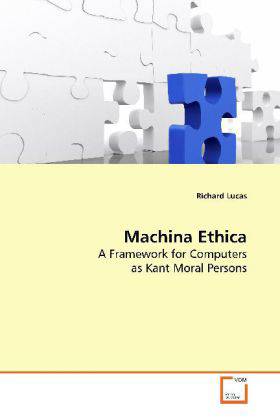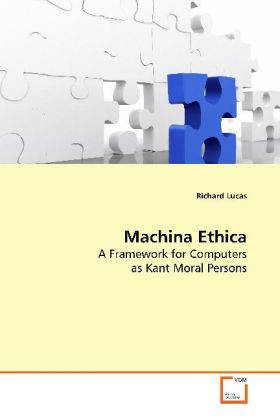
- Afhalen na 1 uur in een winkel met voorraad
- Gratis thuislevering in België vanaf € 30
- Ruim aanbod met 7 miljoen producten
- Afhalen na 1 uur in een winkel met voorraad
- Gratis thuislevering in België vanaf € 30
- Ruim aanbod met 7 miljoen producten
Zoeken
€ 77,95
+ 155 punten
Omschrijving
Can computers be ethical? This book explores the
criteria for
computers being a Kant moral persons.
Alan Turing the mathematician, once remarked that at
some future
time we will talk of computers thinking without
controversy. Will the
same happen to morality: will we speak of computers
acting ethical
without anyone raising a word of concern? Ought we
be concerned?
I think so. So much of our technology is thought
about after its
affects have become embedded, after it is much too
late to dodge
the bullets of consequences. One of the reasons that
some
technology sneaks up on us is that we have not
thought about its
possibility before: that we have not considered its
shape or
character. I think we ought to do this for the
ethics of computers.
Here I examine in detail the question of whether
computers can be
ethical and in this examination look at some of the
boundaries that
might be in place for them as well as the
characteristics they might
have to have to be considered ethical.
criteria for
computers being a Kant moral persons.
Alan Turing the mathematician, once remarked that at
some future
time we will talk of computers thinking without
controversy. Will the
same happen to morality: will we speak of computers
acting ethical
without anyone raising a word of concern? Ought we
be concerned?
I think so. So much of our technology is thought
about after its
affects have become embedded, after it is much too
late to dodge
the bullets of consequences. One of the reasons that
some
technology sneaks up on us is that we have not
thought about its
possibility before: that we have not considered its
shape or
character. I think we ought to do this for the
ethics of computers.
Here I examine in detail the question of whether
computers can be
ethical and in this examination look at some of the
boundaries that
might be in place for them as well as the
characteristics they might
have to have to be considered ethical.
Specificaties
Betrokkenen
- Auteur(s):
- Uitgeverij:
Inhoud
- Aantal bladzijden:
- 300
- Taal:
- Engels
Eigenschappen
- Productcode (EAN):
- 9783639143928
- Uitvoering:
- Paperback
- Afmetingen:
- 220

Alleen bij Standaard Boekhandel
+ 155 punten op je klantenkaart van Standaard Boekhandel
Beoordelingen
We publiceren alleen reviews die voldoen aan de voorwaarden voor reviews. Bekijk onze voorwaarden voor reviews.








